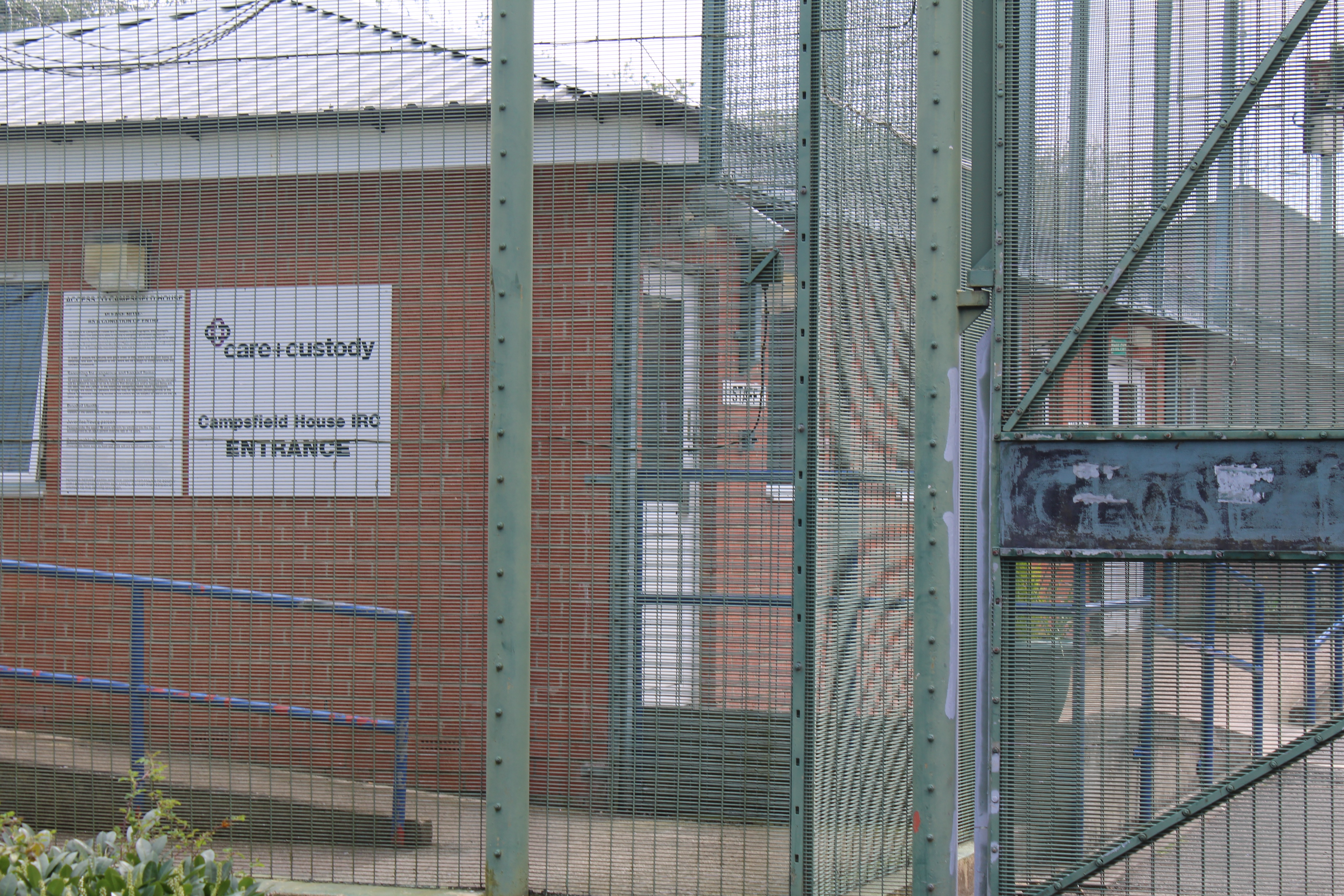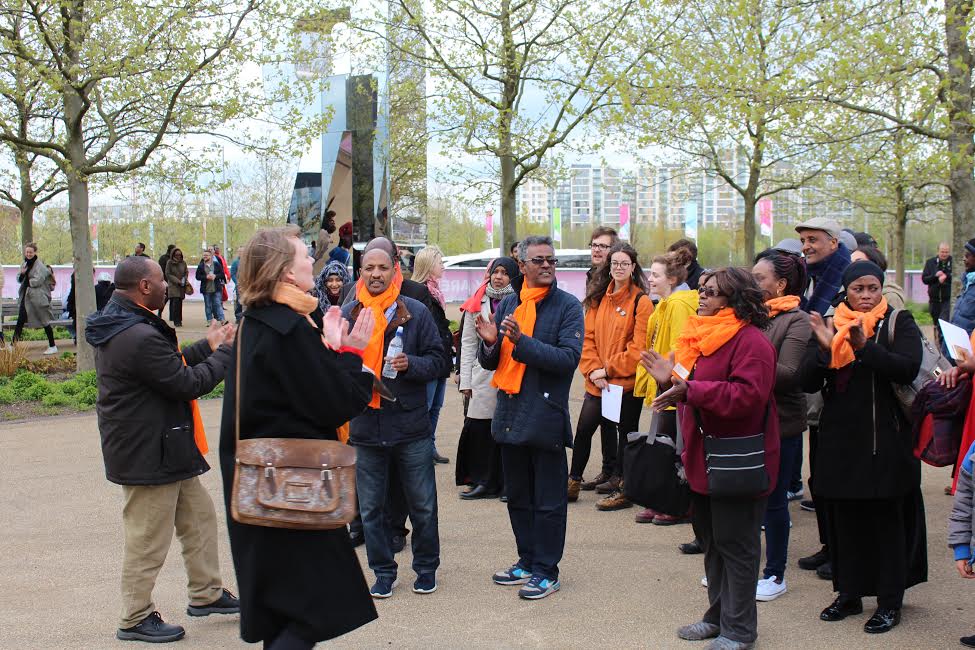
Sithamparam Pillai had experience with detention.
He came to the UK in 2010, when he was 20, on a student visa after two stints in detention in Sri Lanka, resulting from the conflict between the government and the Tamil minority to which he belongs.
"It wasn't my choice [to leave]," he said. "I was just released from detention in Sri Lanka, so I had to escape from the danger and the hell."
In 2013, with the government still asking about his whereabouts, Pillai, who asked that his real name not be used for reasons of privacy, applied for asylum.
Pillai's first asylum claim was turned down due to lack of evidence. While he prepared his second claim, he was ordered to sign into a Home Office location weekly to prove that he had not absconded.
In November 2013, he went to sign in and was asked to step into another room and answer some questions. Guards came and removed his coat and other personal effects.
"And then after half an hour, this one person came and she told me, 'I'm sorry, we going to detain you, you don't have any merits on your case,'" said Pillai. "I didn't know what was happening, because I'd never heard about detention … I was shocked. I couldn't imagine that it's happening now—whatever happened back home is happening now."
Immigration detention is mostly for migrants who the government believes may abscond while applying for permission to stay in the UK, or in preparation for deportation for an immigration offense.
Detention is not prison, although the detention facilities are surrounded by fences topped with razor wire. A border official can detain a migrant without a judge's approval, and a migrant does not have to commit a crime to be held in detention.
Each year, the UK detains about 30,000 people, most for short periods of time—the great majority for less than 28 days. But Britain is the only country in Europe which has no upper limit on detention. Around 6 percent of detainees stay for over six months, while about 1 percent have been detained for a year or more.
The toll on those detained, however, can be severe.
"Just about everyone I've assessed is suffering from severe depression, severe anxiety, post-traumatic stress disorder, and in some cases they are suicidal," said a clinical psychologist who provides expert witness for detainee's bail hearings. (She asked that her name not be used for reasons of professional ethics.) "And their condition, normally, has been created by the conditions of detention."
For Pillai, "it was hell."
He lost weight, and his mental health began to deteriorate. At one point he received a letter on a Friday saying he would be deported on Monday. No one worked over the weekend.
That day, he went to the doctor's office and began crying. The doctor had guards remove him to the isolation unit.
"I was in isolation detention—there's the guard who was watching me," said Pillai.
"Even if I go to the toilet he will watch me, how I am sitting, how I am doing that. And then I thought I could end my life, and I found the piece of cloth and I tried to end my life."
The guard saw him and ran in, pulling Pillai's hand behind his back, pushing him to the floor, and kneeling on his back. After that, he was moved to a room with another man, who would scream and cry at night.
Pillai's solicitor, who took the case pro-bono, worked overnight to cancel his deportation and, after two and a half months in detention, got him released on bail. When he was released, Pillai had lost nearly 10 kilograms.
His second asylum claim is still being reviewed. In the meantime, he has been able to continue his education and volunteer helping other migrants.
Detention has recently sparked a nation-wide debate after a series of recommendations for the Home Office, the Shaw Review, was released in January 2016. This called for a "presumption against detention" for victims of rape, transsexuals, and those with PTSD or learning disabilities, as well as a total ban on the detention of pregnant women.
The House of Lords proposed an amendment to the Immigration Bill 2016-2015 to have judicial review after 28 days. They finally compromised with the House of Commons creating automatic bail hearings after four months.
The Home Secretary Theresa May has also announced a 72 hour limit on the detention of pregnant women, and this policy was passed as an amendment to the Immigration Bill.
When asked what advice he would give to the Home Office, Pillai answered instantly—"Stop detention."




